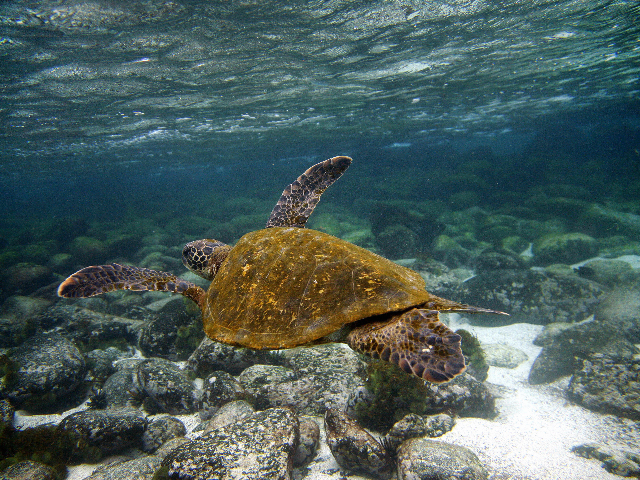The Ecuadorian Navy is monitoring the presence of hundreds of fishing vessels, many suspected to be Chinese, near the Galapagos Islands and has increased patrols to prevent the ships from entering their ecologically sensitive water, the country’s defense ministry confirmed this weekend.
According to Navy officials, officials identified around 260 vessels in the vicinity of the Galapagos Islands’ exclusive economic zone, although none made a direct attempt at entering.
“We are on alert, (conducting) surveillance, patrolling to avoid an incident such as what happened in 2017,” Defense Minister Oswaldo Jarrin said at a press briefing. “There is a corridor that is international waters, that’s where the fleet is located.” That corridor is located between the protection zone and Ecuador’s territorial waters, which serves as a migration route for many sea creatures, including some endangered species.
The incident in question resulted in the arrest and prosecution of a crew of Chinese fishermen found in illegal possession of 6,600 sharks they had caught off the Galapagos, leading to a diplomatic spat between the two countries. They were eventually found guilty and sentenced to between one and four years in jail as well as a $5.9 million fine.
The arrival of the vessels has sparked concern among environmental groups, which have warned that overfishing will cause significant damage to the ocean’s ecosystem and destroy parts of its wildlife.
“It’s been reported to us that hundreds of Chinese fishing vessels are currently forming a line below the Galapagos Islands,” the Blue Planet Society wrote on Twitter. “We are watching the destruction of the ocean in real-time.”
The Society also shared an article from the Sydney Morning Herald revealing how China’s distant fishing vessels are using “football stadium-style lighting” to catch enormous numbers of fish. Scientists have estimated that, in recent years, the fleet has caught more than 160,000 tonnes of Pacific flying squid, worth over $560 million yet in likely breach of U.N. sanctions.
“China must be held account if we want to save the ocean,” the Society noted.
It is not the first time that Chinese vessels have been caught in and around the Galapagos Islands, studied by Charles Darwin as he developed his theory of evolution. Last year, a fleet of 245 ships were also detected in the Galapagos Conservation Zone, harvesting huge numbers of exotic fish and sharks in protected waters.
Maritime experts warned last week that Chinese “dark fleets” have been fishing in North Korean waters in a flagraing violation of U.N. sanctions, earning themselves and Kim Jong-un’s communist regime around half a billion dollars in illicit fees.
The presence of large, powerful Chinese vessels has forced North Korean fishermen out of their own territorial waters, leading them to travel further afield in order to make significant catches. This has led to many ships crossing into Russian waters, leading to disputes with Russian authoritie and the risk of starvation and death given the fragility of their wooden vessels.
Follow Ben Kew on Parler, Facebook, or Twitter. You can email him at bkew@breitbart.com.

COMMENTS
Please let us know if you're having issues with commenting.